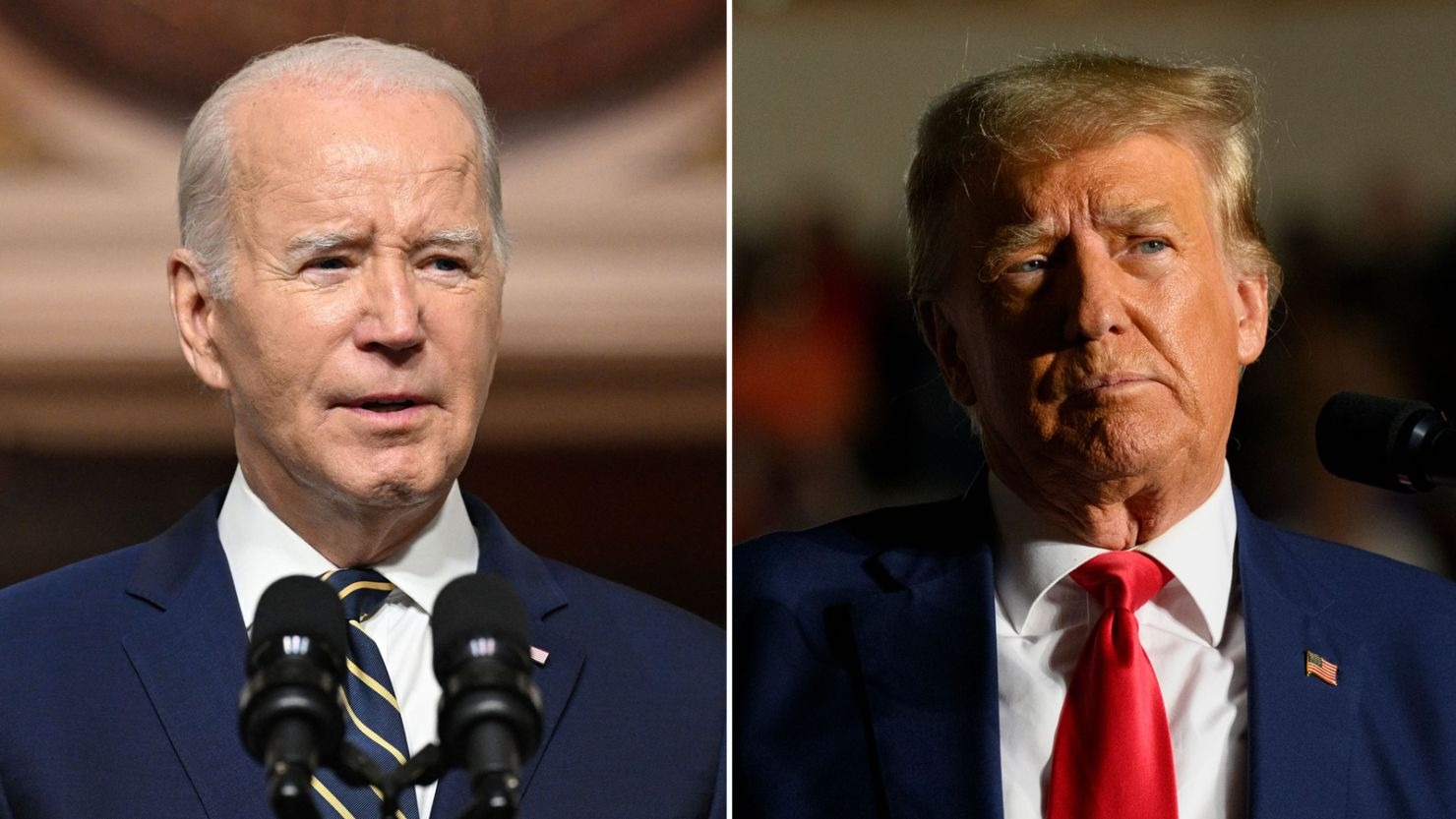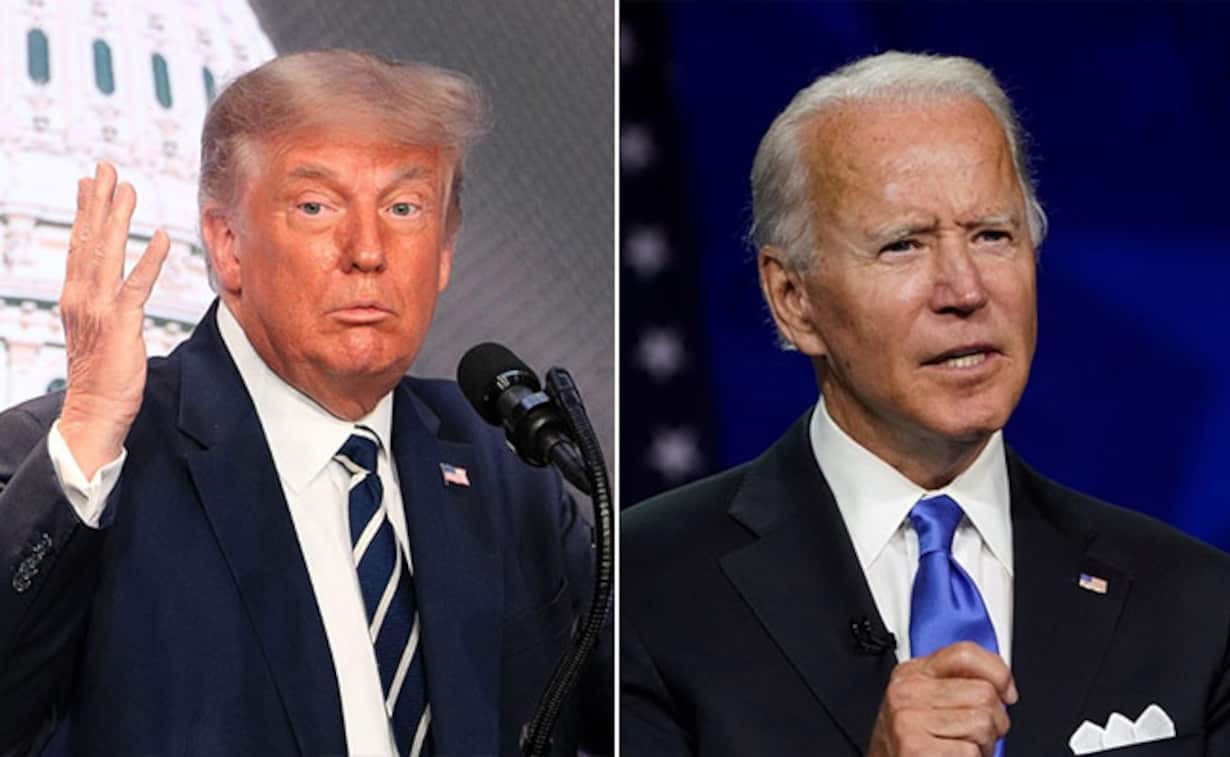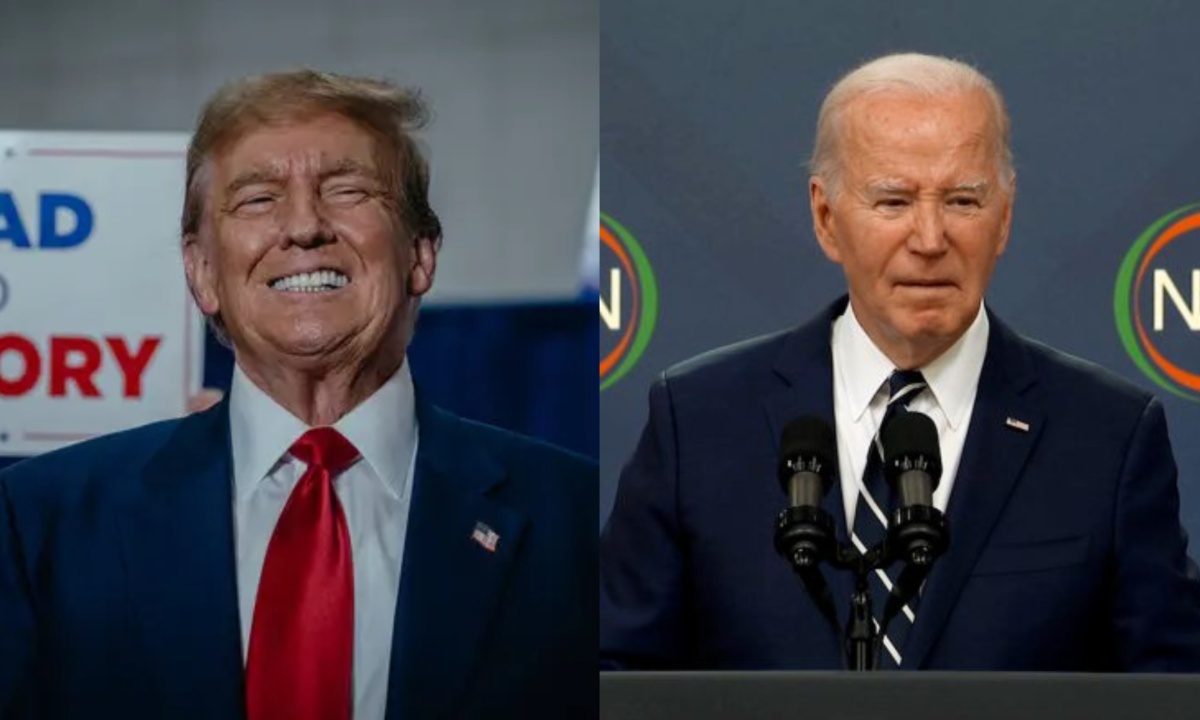The latest I&I/TIPP presidential election poll indicates a tight race between Joe Biden and Donald Trump, with Biden holding a slight edge in a direct matchup but facing a potential challenge when third-party candidates are included.
In the head-to-head survey, Biden leads Trump 43% to 40%, with 18% of respondents either supporting another candidate or remaining undecided.
However, the dynamics shift crucially when independent and third-party candidates are considered. In this scenario, Biden and Trump are tied at 38% each. Independent candidate Robert F. Kennedy Jr. appears to be a factor, capturing 11% of the vote, which predominantly draws from potential Biden supporters.

Biden and Trump (Credits: CNN)
The poll suggests that Kennedy’s inclusion reduces Biden’s share of the independent vote by 6 percentage points, while Trump’s share decreases by only 2 percentage points.
This shift is particularly evident among independent voters. In a three-way race, Trump leads this group with 31%, followed closely by Biden at 29% and Kennedy at 18%.
Without Kennedy, Biden leads among independents with 35%, compared to Trump’s 33%. This demonstrates the important influence that third-party candidates can have on the election dynamics, particularly among independent voters who may be dissatisfied with the major party candidates.
The analysis of the poll underscores the potential impact of third-party and independent candidates on the total election results. Independents show a substantial willingness to support these alternative candidates, with 26% of their votes going to independent and third-party challengers.
This is in stark contrast to Republicans, who allocate only 5% of their votes to candidates outside the two major parties. Democrats also show vulnerability, with 12% expressing intent to vote for someone other than Biden or Trump.

Trump and Biden (Credits: NDTV)
These polling results are crucial as they highlight the complexity of voter sentiment and the potential for third-party candidates to influence the outcome of the upcoming presidential election.
The presence of candidates like Kennedy could reshape the traditional two-party competition, especially if disaffected voters from either side choose to divert their support to alternative options.
The poll’s findings may prompt both major parties to reassess their strategies, particularly in appealing to independents and those undecided or dissatisfied with the current political landscape.
This nuanced voter behavior reflects broader trends of dissatisfaction and desire for more diverse political representation, signaling that the 2024 presidential race could be influenced unforgettably by candidates outside the traditional Republican and Democratic nominees.























